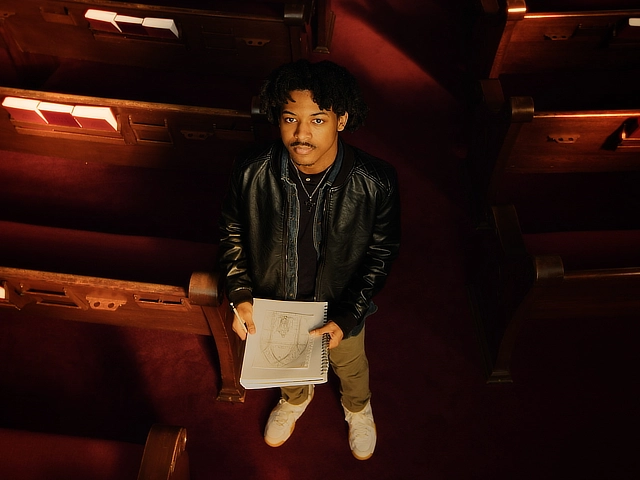
Art and creativity really matter to God. We don’t always get that same messaging from culture. If schools are short on cash, they often look to slash spending in their arts departments. If companies have to tighten up their bottom line, usually the easiest target is their design and marketing budgets. God’s economy doesn’t work like this.
I was reminded of this, yet again, as I finished another round of praying through the Psalms (a practice I recommend to every worship leader I know—every Christian I know, really). In most literature courses, we learn about something called the “law of final stress”—the idea that, for many written works, what is disclosed at the end is likely important to the author. The Psalms have a final stress, and the arts are there, front and center.
If you pray through the Psalms, you notice that the ending—the last ten or so Psalms—rev up in a kind of crescendo of praise. The final three Psalms (148-150) are the burst, the explosion of words and phrases basically trying to say the same thing in a thousand different ways: “Praise the Lord!”
Psalm 148, interestingly, focuses in on praising God for being creative. It surveys the world and demands that every created thing praise the Lord: heavens, angels, sun, moon, stars, sea creatures, hail, snow, mountains, fruit trees…even “creeping things” (Ps 148:10). All of God’s created raw material is rallied to praise him.
Skip over to Psalm 150 and you have a different order of created things summoned to praise the Lord: trumpets, tambourines, dance, strings, cymbals. What are the created things here? They are artifacts that have been touched by the hands of humanity. All those instruments and artistic expressions are the raw materials of our creative God, fashioned into artistic materials by creative people. Art matters to God.
When a craftsman takes God’s raw material from a tree to a violin, he participates in the valued process of art-making stressed in the Psalms. When a dancer disciplines her body to perform beautiful, meaning-loaded movements, she honors the very God who fashioned her body and called it “very good” (Gen 1:31).
The Psalms—which stand at the center of the Bible…and stand at the center of worship for every Christian—bear witness to a God who reminds every artist and every creative endeavor: “This isn’t a waste of time; this all matters.”
So, creative reader, go “waste” your time practicing, creating, failing, succeeding. Art is worth it. It’s holy, worshipful work.
Make plans to join us on November 1, 2023, for a worship exchange at Samford University with worship pastor Zac Hicks, who will help us continue important conversations on worship, theology, and the arts. Lunch is free, but registration is required.
 Zac Hicks is pastor of Church of the Cross in Birmingham, Alabama. He has been pastoring and leading worship for over two decades in churches all across the U.S.—Hawaii, California, Colorado, Florida, and most recently Alabama. He is author of The Worship Pastor (Zondervan, 2016), Worship By Faith Alone (IVP Academic, 2023), and Before We Gather (Zondervan, 2023). A songwriter and producer, Zac’s music is streaming everywhere. Zac’s passions include the intersection of old and new in worship, the pastoral dimensions of worship leading, and recovering the gospel-centered theology of the Reformation for the sake of worship renewal. Zac has been married to his wife, Abby, for over twenty years, and they have four kids: Joel, Jesse, Brody, and Bronwyn.
Zac Hicks is pastor of Church of the Cross in Birmingham, Alabama. He has been pastoring and leading worship for over two decades in churches all across the U.S.—Hawaii, California, Colorado, Florida, and most recently Alabama. He is author of The Worship Pastor (Zondervan, 2016), Worship By Faith Alone (IVP Academic, 2023), and Before We Gather (Zondervan, 2023). A songwriter and producer, Zac’s music is streaming everywhere. Zac’s passions include the intersection of old and new in worship, the pastoral dimensions of worship leading, and recovering the gospel-centered theology of the Reformation for the sake of worship renewal. Zac has been married to his wife, Abby, for over twenty years, and they have four kids: Joel, Jesse, Brody, and Bronwyn.
